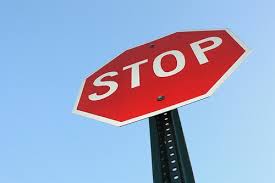You must write more than 250 words for Task 2 and more than 150 words for Task 1.
Unfortunately, there is some really bad advice and misconceptions surrounding this question. The worst advice I’ve heard are ‘You don’t have to write 250 words in writing part 2, 10% below this is OK.’ and ‘You should write as much as possible to get a good mark.’ These two statements are wrong and will lead to lost marks.
What happens if I write under the word count?
The only advice you should listen to is this- If you want to answer the question properly, you must write at least 250 words in part 2 and at least 150 words in part 1. If you write less than these totals, you will lose marks under ‘Task Achievement’ because you haven’t answered the question properly.
IELTS examiners must sit and count all their words for this reason. It is really heartbreaking when a good candidate produces a great answer and only writes 249 words in part 2. Unfortunately, we have to mark them down.
Should I write more words to get a good mark?
No! This is a bad idea for a few reasons.
Firstly, you only have a set amount of time to answer both questions. Time management is one of the most important things to learn in the IELTS writing exam. If you spend too much time on one question, you sacrifice marks on the other.
Secondly, you are more likely to make grammar mistakes if you keep writing over the word limit, and this will bring your overall mark down.
Finally, you are being judged on quality, not quantity. Focus on making your answer the best it can be rather than the longest it can be. Remember you should allocate time to planning, checking, and writing.
How many words should I write?
You won’t have time to count all your words in the exam. Therefore, I suggest that you aim to write about 10% of what you are expected to write. In other words, aim to write around 160-170 words for task 1 and 270-280 words for task 2. If you aim for this amount, you are far more likely to exceed the required word limit.
How do I know how many words I have in the exam?
As stated before, you won’t have time to count all of your words, but there are other ways to judge this. I advise my students to download the official IELTS writing answer sheets, print them out and practice using these. All of the answer sheets are the same size; therefore, you will be able to see how much of the sheet you use for the required word limit.
Practising with the official answer sheets will also familiarise you with the test, and you will not get any surprises on test day.
Are all words counted the same way?
Unfortunately, no! Hyphenated words like ‘First-class’ or ‘State-of-the-art’ count as one word only. Contractions like ‘I’ll’ or ‘we’re’ also count as one word. (Ideally, you should not be using contractions in academic essays).
Words like ‘a’ ‘an’, and ‘the’ are always counted towards the word limit.
Punctuation is not included in the word count.
Can I copy words from the question?
You can copy single words but can’t copy whole parts of the question. You should never copy full sentences from the question. Repeating the question will mean the examiner subtracts these words from your word count and is therefore the same as writing nothing at all. You are being judged on your ability to paraphrase using synonyms, so try to master this skill, and you will avoid copying.
Example Question– Successful sports professionals can earn much more money than people in other important professions.
Example Paraphrasing- Successful athletes can make much more money than people working in other important jobs.
As you can see, I have repeated the words ‘successful’, ‘money’ and ‘important’, but I have replaced most of the other words with synonyms.
Can I repeat sentences?
Again, simply repeating yourself will lead to the examiner not counting these words. Some students try to repeat themselves if they are running out of time. It is always better to write something new than repeat the exact words again.




